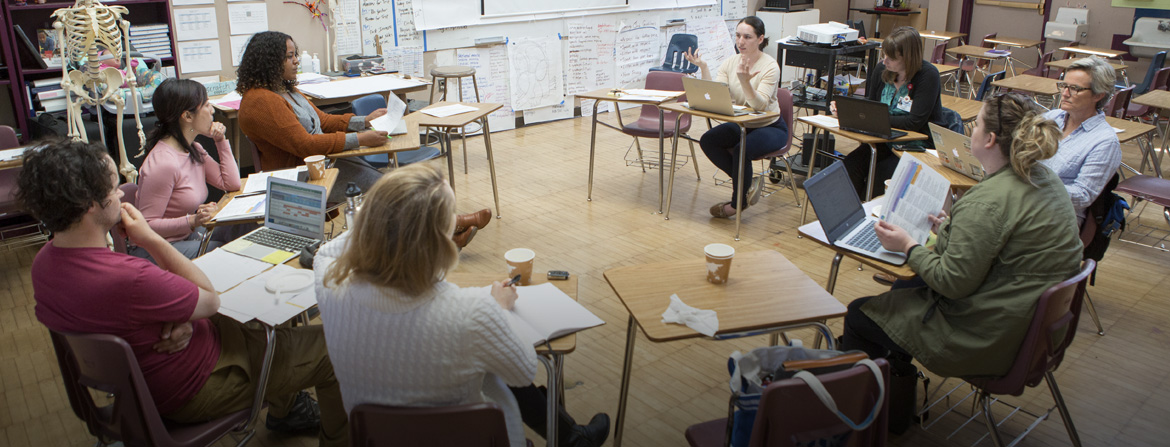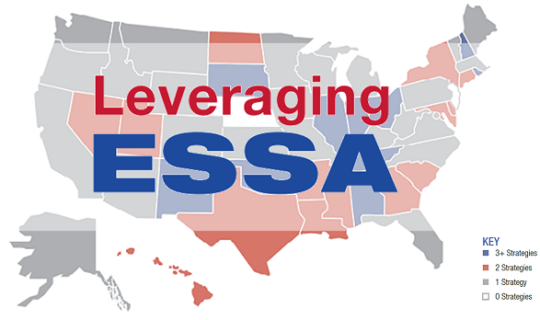For K-12 Leaders
Local and state K-12 leaders are grappling with a common set of challenges, and with those challenges come opportunities to advance ambitious improvement agendas. How to maintain high expectations for all students and close persistent achievement gaps that leave many unprepared for their next steps after high school? How to provide students with accelerated pathways that put them on-track for college and career success? How to accompany high expectations with an intensive system of supports that address learning gaps and give students a leg up on their transition to postsecondary education? And how to build stakeholder support for these efforts to ensure a deep and sustained commitment to improvement? At ESG, we specialize in strategies to address these issues, bringing years of experience and expertise to bear to achieve greater impact.
Communities leading the way
In our work with states and districts, we have seen how well-implemented policies to improve college and career readiness can make a difference in the lives of students and the well-being of communities.
- Louisiana has simultaneously increased the number of students obtaining an industry-recognized credential and completing the Free Application for Federal Student Aid (FAFSA), demonstrating that supporting college and career readiness is not an either/or proposition.
- Tennessee has scaled the implementation of a 12th grade transition course for students not yet ready for college statewide, preparing more than 50,000 students for the rigors of college, while increasing the rate of students that enroll in postsecondary education directly after high school.
- Delaware has worked to get every student in the state that scored at the college-ready level on the state assessment to apply and be accepted to college through the “Getting to Zero” campaign.
- El Paso, TX has expanded its early college high school program to enable low-income students experience the rigors of college while still in high school, leading to more than 1,500 youth earning their associate degree at the same time as their high school diploma.
- Boston, MA’s Private Industry Council partners annually with the local school system to help place over 3,000 students in summer work-based learning opportunities, creating pipeline to the future for students and employers.
Why cross-sector alignment is critical to reach your goals
To support long-term success for students and states, K-12, postsecondary and workforce leaders must look beyond their sectors. The data are clear that a high school diploma alone is not enough for long-term student success. Four out of five employers report gaps in recent high school graduates’ skills. The unemployment rate for individuals without some postsecondary education or training is more than double than their peers. Nearly every job created after Great Recession is for individuals with more than a high school education. In the next few years, two-thirds of all jobs will require some postsecondary education or training. Now more than ever, “success” in K-12 should be measured, in part, by how well students perform when they transition out of high school into college and the workforce
Unfortunately, significant gaps exist in student preparation for success beyond high school. On national assessments, only about 40% of students meet college readiness benchmarks. Each year, millions of students arrive on a college campus and find themselves in remedial education, and very few of these students ever attain a credential that can put them on a path to economic opportunity.
In the states and communities experiencing the greatest success closing these gaps, K-12 and higher education leaders have intentionally locked arms to develop aligned expectations, cross-sector partnerships, mutually reinforcing goals, and structured student supports. By working together, these leaders have laid the groundwork to help all youth prosper in education, work and life.
How ESG can help achieve impact
Education Strategy Group’s mission is to increase educational attainment rates and expand economic opportunity in the U.S. We work with K-12, postsecondary, and business and industry leaders to align expectations, create high-quality career pathways, promote seamless transitions into postsecondary, and modernize accountability systems to promote readiness for all. As a team, we bring years of combined local, state, and national experience building networks, developing policies, and implementing programs to support students. Learn more about Our People.
We currently support college and career readiness activities in a number of settings. We partnered with the Council of Chief State School Officers and Advance CTE on the New Skills for Youth initiative to support state improvements to their career readiness systems. We are working to identify and implement strategies for expanding high-quality career pathways in Montgomery County Public Schools. Through our Higher Ed for Higher Standards coalition, we work to support K-12 and higher education alignment for student success. Learn more about our current and past Clients.
For more information about our work, visit our Focus Areas and Services.
How can we help?
To discuss how we can help you achieve greater impact, Contact Us.





